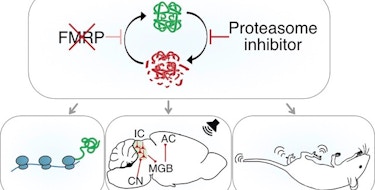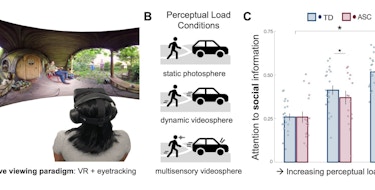Autism spectrum disorder (ASD) is four times more prevalent in males than in females. In recent years, maternal infections and inflammation, referred to as maternal immune activation (MIA), have been linked to an increased risk of ASD.
A recent mouse model study suggests that MIA selectively causes changes in the fetal brain stress responses in male but not female offspring (Kalish and Kim et al., Nat. Neurosci., 2021), potentially explaining the male bias in ASD at least in part. The work was supported in part by a SFARI Research Award to SFARI Investigator Jun Huh, who examines molecular pathways involved in MIA and potential ways to ameliorate MIA-induced phenotypes in mouse model systems.
In their study, to understand the effects of MIA on offspring, the researchers examined changes in RNA levels and in protein production in both male and female fetal mouse brains using high-resolution single-cell analyses. While both male and female offspring showed a variety of RNA changes in various brain cell types as a result of MIA, there were noticeable sex differences. In particular, male offspring showed a much more dramatic reduction in the expression of protein synthesis machinery and in new protein production than female offspring. Further, a detailed examination of the specific proteins affected by this process in males versus females suggests that the particular changes in females lead to an adaptive response that may increase resiliency to MIA.
The researchers further found that in male fetuses, these molecular changes were caused by activation of a global adaptive stress response driven by the maternal inflammatory molecule IL-17a. Interestingly, prior studies have demonstrated a role for filamentous gut bacteria in MIA-induced IL-17a activation (Kim et al., Nature, 2017) (Lammert et al., J. Immunol., 2018), supporting potential links between ASD and the maternal microbiome.
As the researchers found that blockading this stress response in male offspring mitigates ASD-related behavioral changes in these animals, the results support a view that that sex-specific differences in fetal stress responses may play a role in the increased ASD risk caused by maternal immune responses.
Reference(s)
Maternal immune activation in mice disrupts proteostasis in the fetal brain.
Kalish B., Kim E., Finander B., Duffy E.E., Kim H., Gilman C.K., Yim Y. S., Tong L., Kaufman R.J., Griffith E.C., Choi G. B., Greenberg M., Huh J.


